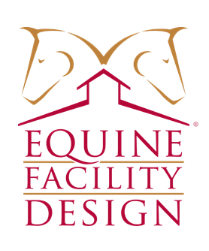On the night of February 10, 1864, President Abraham Lincoln was awakened by a fire alarm outside the White House.
His bodyguard, Robert McBride, saw Lincoln dash across the space between the residence and the Treasury building—the stables containing the Lincoln family horses was on fire.
With the horses still inside, Lincoln “with his own hands burst open the stable door.” McBride reported that others standing nearby prevented Lincoln from entering the hopelessly-engulfed stables. Six horses died, and when McBride returned to the White House, he found Lincoln in tears.
Though that fire was determined to be arson, most barn fires are due to negligence and are preventable.
Barn housekeeping
Good housekeeping is the rule in barn-fire prevention. It might seem like dust bunnies and cobwebs are just an unattractive nuisance but keep in mind that any trash, hay, or debris is potential fuel for fire.
Housekeeping at least once a month or more is not too much to ask to keep your horses safe. Look beyond the obvious things and clean up. Your horses will be healthier for it as well as safer.
And horse owners can hardly be faulted for thinking that their big barns are a great place to store things. You’ll find gas, paint, oil, kerosene, paper, rags, and more in an average barn.
Never store uncured hay in your barn. Heat is generated during the curing process.
Electricity: hot and cold
Not to mention equipment storage. If you have exceptionally cold winters, be extremely careful about using devices to warm up a tractor or other equipment in the barn. If you keep chickens in the same barn, it’s a bad place to use a heat lamp.
You’d be surprised on the other end of the temperature spectrum how many times fans (that are designed for use in the house) used for cooling horses, overheat and catch fire due to dust in the motors. All electric motors used in the barn should be sealed.
Is there anything electrical a horse might chew on or pull out of the wall? Are fixtures or cages installed around light bulbs? Is there a master power switch outside the barn? Always remove extension cords after use; don’t leave them to permanently power devices.
Escape plans and accessibility
Are there easy escape routes from the barn if you had to get your horses out quickly? Most barns are not near a fire station and if another building is involved in a blaze, the barn may not be the first to get attention from fire fighters.
Is the road to the barn clear and wide enough for fire equipment? Have you thought of inviting local firefighters to your place to discuss planning?
A good plan and a checklist, along with responsible follow-through, will help you avoid ever having to experience Lincoln’s heartbreak.

